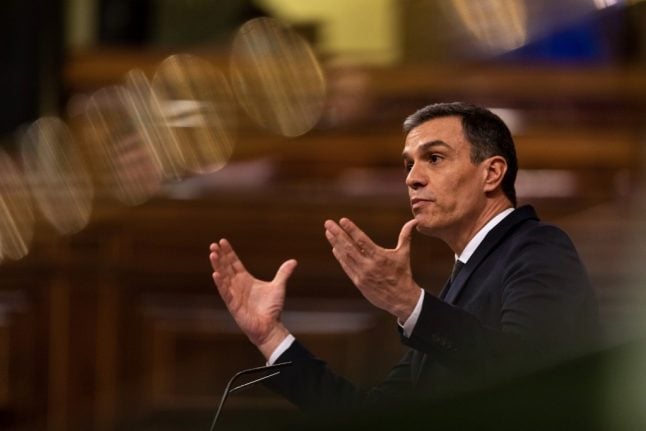It is the sixth time the measure has been renewed, meaning the restrictions will remain in force, although they have been significantly eased since the start of the lockdown in mid-March.
The emergency has let the government impose significant limitations on freedom of movement, keeping Spain's nearly 47 million population largely at home in a bid to fight the epidemic which has claimed over 27,000 lives.
Although Sanchez's left-wing coalition only holds a minority in the 350-seat chamber, the extension passed after he reached agreement with several smaller parties.
The vote went through with 177 for, 155 against and 18 abstentions.
Even though the pandemic is well under control in Spain, where only around 60 people have died over the past week, the government insists it is a fundamental measure as the country moves through the final phases of the rollback which is due to be completed by late June.
By that point, Sanchez is hoping that normal freedom of movement will be fully restored and Spain will open its borders to international visitors from July 1st.
But the government's management of the crisis has come under fierce attack from the right, which has accused Sanchez of abusing the state of emergency to suppress individual liberties.
“We undertook one of the strictest lockdowns in Europe and the West,” Sanchez told lawmakers. “It has been terribly hard but tremendously effective,” he said.
But his right-wing opponents quickly hit back, accusing him of incompetence.

People's Party (PP) leader Pablo Casado takes part in the Government's question time session prior to the vote. Photo: AFP
“You have been incapable of saving lives and have not defended the economy, affecting thousands of people,” said Pablo Casado, head of the right-wing Popular Party.
And far-right Vox leader Santiago Abascal accused Sanchez of “criminal negligence” that had caused the deaths of “tens of thousands of Spaniards”.
But the prime minister warned them about stirring hatred.
“The poison of hatred is the most harmful,” he said, pointing to the massive unrest sweeping the United States following the killing of an unarmed African-American when a white policeman knelt on his neck.
“We can see it in the United States and we don't want to see it here.”
READ MORE:



 Please whitelist us to continue reading.
Please whitelist us to continue reading.
Member comments